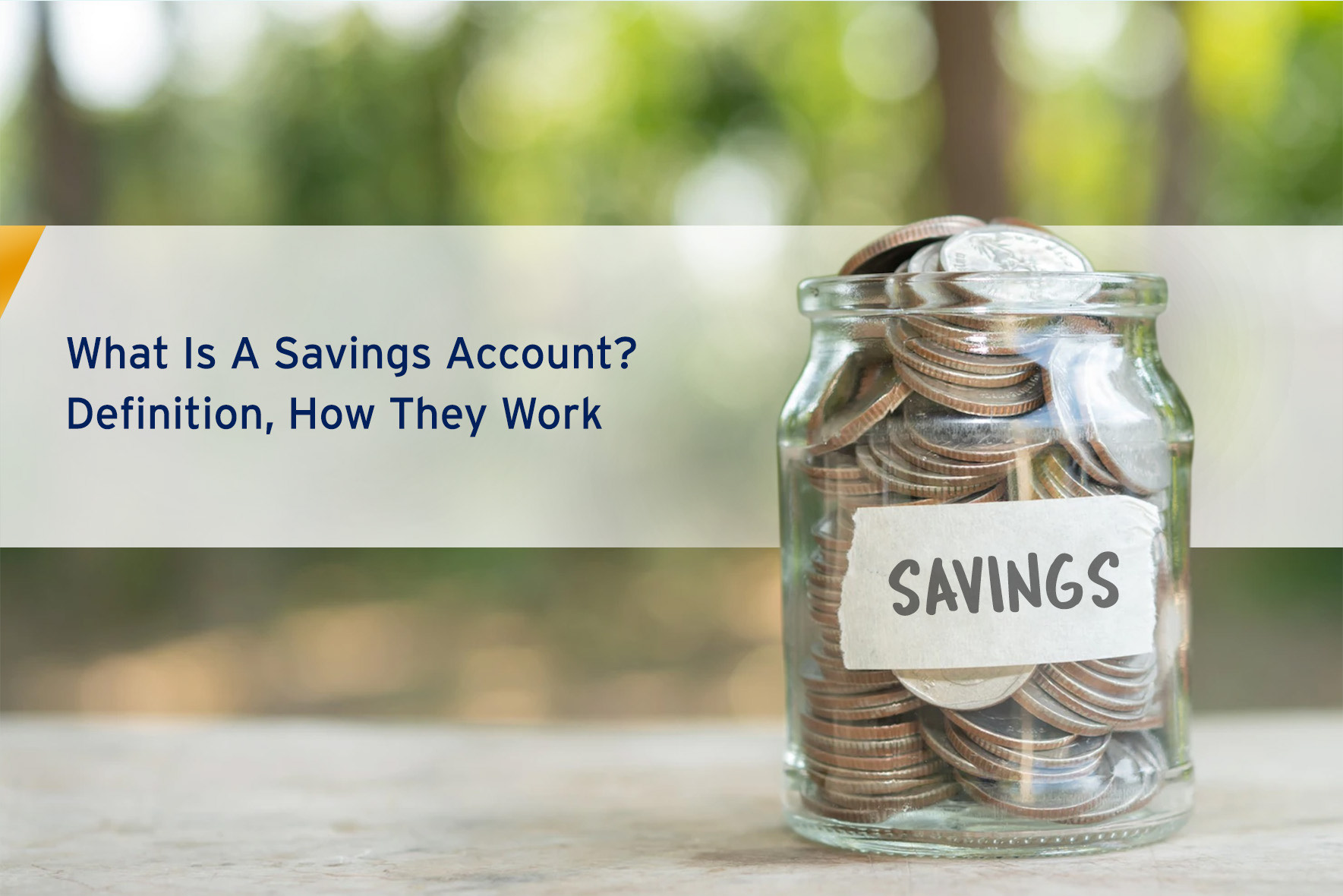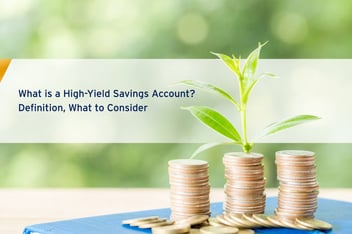
What Is A Savings Account? Definition, How They Work
Author Taiwo Temitope-Adesope
In the last couple of years, the global and local economies took massive hits. If that taught us anything about managing money, it’s that having money set aside in a savings account is crucial.
Are you interested in knowing everything about savings accounts and how they work? You have come to the right place.
What is a savings account?
A savings account is a deposit account designed to hold money you don’t plan to spend immediately. It is different from a current account which has a cheque book and allows you to make third-party payments.
Savings accounts help you keep money aside for specific purposes and goals. For example, you may open a savings account to hold your emergency fund.
When you’re ready to use the money, you can withdraw it from savings. Many banks limit the number of withdrawals or transactions you can make from a savings account.
Common features of a savings account
Saving accounts, whether with traditional banks or online banks, do operate with some common features.
One key feature of a savings account is that it allows for a limited number of monthly withdrawals. Exceeding that number comes with some form of penalty.
In the past, you would require a passbook to access your funds in a savings account.
Today however, transactions on a savings account can be done online and are recorded electronically.
Savings accounts normally pay interest as well. Almost all savings accounts accrue compound interest over time.
In Nigeria, savings accounts are usually protected by the Nigerian Deposit Insurance Corporation, NDIC.
Types of savings accounts
There are different types of savings accounts that often serve particular purposes.
So, whether you intend saving towards a goal, your children’s education, or unforeseen emergencies, there is something for you.
Some of the types of savings accounts that exist include;
-
Traditional or regular savings account
This is usually targeted at people who need to save money for the short or long term and aren’t as concerned about getting the best interest rate, expressed as the annual percentage yield (APY).
These types of savings accounts generally allow you to earn interest on your money, although they usually pay lower rates than other savings products.
With these accounts, you may be able to manage your account online, via mobile banking, by phone or at a branch.
They are usually easy to open and you can earn interest on your savings to grow your money.
However, the interest rates are usually low compared to other savings options.
-
High-yield savings account
High-yield savings accounts are targeted at those who want to earn a more competitive rate on savings while minimizing fees.
Typically found at online banks, high-yield savings accounts offer a higher APY compared to regular savings accounts.
Online banks often offer different types of high yield savings accounts to attract savers who want to earn a better interest rate than what is found at traditional banks.
This type of savings account is appealing to those who are comfortable managing their account via website or mobile banking versus visiting a branch.
However, because it is mostly offered by online banks, you can’t deposit cash directly into your account at a branch.
Also, you may or may not have access to your money via ATM.
-
Money Market Accounts
You want to earn interest on savings while having more options for accessing your money? Then a Money Market Account is for you.
Money market accounts (MMAs) combine features of a regular savings account with features of a current account.
You can find these accounts at traditional banks, online banks and credit unions.
These accounts, which may also be called money market savings accounts or MMSAs, allow you to earn interest on your savings.
Its interest rates are typically better than regular savings accounts. Some offer rates similar to high-yield savings accounts.
You may also be able to write cheques from your account or access funds with an ATM or debit card.
Similar to regular or high-yield savings accounts, banks can impose a fee if you make more than allotted monthly withdrawals.
On the downside, Money Market Accounts may require a higher minimum deposit.
Interest rates may be tiered, meaning you’ll need a higher balance to earn the best rates.
Banks may charge a monthly fee for money market accounts.
-
Certificates of deposits
Certificates of deposits (CDs) are a type of savings account designed for people who want to earn competitive rates but won’t need to access their savings right away.
CDs are time deposits, meaning you agree to leave your money in the account for a set period.
During that time, your money earns interest and, when the CD matures, you typically can withdraw your savings or roll it into a new CD.
This sets these accounts apart from other types of savings accounts since there’s a time factor at work.
You can find CDs at traditional banks and online banks, although online banks tend to offer better interest rates.
CDs terms typically range from as short as 30 days or as long as 60 months, with longer terms usually boasting higher rates.
They are best for the money you know you won’t immediately need since banks can charge an early withdrawal penalty if you withdraw your savings before the maturity date.
Also, putting your savings into a longer-term CD makes it harder to capitalize on future interest rate increases.
-
Cash Management Account
Cash Management Accounts are good for people who want to keep cash available to invest in their brokerage or retirement account.
Cash management accounts are different from other types of savings’ accounts because they’re not specifically designed for saving.
Instead, these accounts let you hold cash you may plan to invest in a taxable brokerage account or a retirement account.
Online brokerage platforms may offer cash management accounts to their investors. The money held in the account can earn interest, often at a higher rate than what you’d get at a bank.
Depending on the brokerage, you may get all the standard features you’d expect with a current account as well.
For example, you may be able to write cheques, pay bills or transfer funds to accounts at your bank.
-
Specialty Savings Account
Specialty Savings Accounts are for those who want accounts tailored to specific savings goals.
Specialty savings accounts are designed to help you reach specific savings goals. In some cases, they can be intended for a specific type of person, rather than a savings goal.
For example, there are different types of savings accounts for minors. Three types of savings account you might set up on behalf of a child or teen include:
- Kids’ savings accounts
- Custodial savings accounts
- Student savings accounts
How do savings accounts work?
Having gone through some of the popular types, it is important to know how savings accounts work.
Savings and other deposit accounts are important sources of funds that financial institutions use for loans. For that reason, you can find savings accounts at virtually every bank, whether they are traditional institutions or operate exclusively online.
In addition, you can find savings accounts at some investment and brokerage firms.
Savings account interest rates vary. With the exception of promotions promising a fixed rate until a certain date, banks and credit unions might change their rates at any time.
Changes in the Central Bank of Nigeria’s lending rates can trigger institutions to adjust their deposit rates.
Some savings accounts require a minimum balance while others have no balance requirement.
Money can be transferred in or out of your savings account online, at a branch or ATM, by electronic transfer, or direct deposit. Transfers can usually be arranged by phone, as well.
Some banks have limited monthly withdrawals. Exceeding it may attract a fee or forfeiture of the interest for that month.
Just as with the interest earned on a money market, certificate of deposit, or checking account, the interest earned on savings accounts is taxable income.
With a savings account, you can easily set aside funds for future use or emergencies. You can also earn interest on your savings, so your money grows over time.
So don’t wait any longer – open a savings account today! Click here to view our extensive list of providers, and select the one that best suits your goals.
Begin saving for the future and enjoy the peace of mind that comes with knowing that your funds are safe and secure.
About Author

Taiwo Temitope-Adesope
Taiwo is a passionate storyteller and strategist dedicated to empowering women and crafting compelling narratives. A First-Class graduate in Mass Communication from Covenant University, she specializes in writing, public relations, and digital marketing. As a Content Manager at Suretree, she drove a 50% increase in web traffic through SEO and boosted website engagement by 60% in just four months. Her leadership experience includes serving as Public Relations Officer for the Covenant University Student Council and contributing to impactful volunteer initiatives. With expertise in strategic thinking and business acumen, Taiwo continues to create stories that inspire confidence and imagination.









